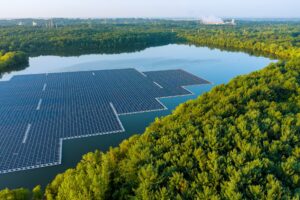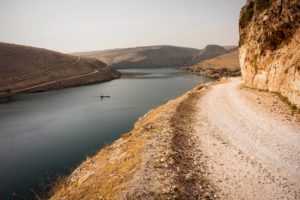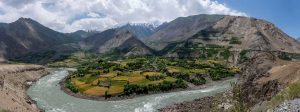Seemingly unrelated challenges often have one thing in common: to address them we must improve how water is managed. SIWI therefore has a clear focus on water management but works in various areas. We also help decision-makers find new solutions by showing how different problems are interlinked.
All sectors of society need to change how they manage water to address the growing water crisis. This is especially important for developing and emerging economies, who tend to be hardest hit by water scarcity and climate change.
1. Water is crucial for development
SIWI advocates for a holistic approach to development and raises awareness of the role of water. Water has an important, but often overlooked, role to play in achieving all the 17 goals of the 2030 Agenda for Sustainable Development.
2. Access to WASH services can create virtuous cycles
To achieve universal access to water and sanitation by 2030, global investments would need to quadruple, according to UN-Water. Both research and real-life examples demonstrate that such investments also fuel economic growth and more than pay for themselves.
As advisor to governments, decision-makers, and institutions, SIWI helps develop policies and processes that strengthen social and economic development, with a special focus on marginalized groups.
3. Improved water governance is a powerful tool
SIWI advises on measures to tackle both water scarcity and water pollution through improved water governance. It is important to simultaneously address water services for humans and water resources management. In addition to supporting decision-makers, SIWI works directly with water utilities and service providers to help them strengthen and climate-proof their operations.
4. The climate crisis needs water solutions
Water is crucial for both climate mitigation and adaptation. Since 2009, SIWI has raised awareness of this in international climate negotiations. We also advise governments on how water can help them fulfill their commitments under the 2015 Paris Agreement on climate change. Many SIWI projects support different sectors to climate-proof their operations, which is often linked to reducing their water footprint. SIWI is also generating new knowledge on water’s role in climate mitigation.
5. Creating new food systems
Many SIWI activities are related to food. We conduct studies on the role of rainfed agriculture and on the link between water management, agriculture, and nutrition. We advocate for more investments to improve the productivity of smallholder farmers in Sub-Saharan Africa through the TIARA programme, Transforming Investments in Africa’s Rainfed Agriculture. Without such investments, food security in the region will be increasingly at risk as global warming is making rains more unpredictable.
6. New approaches to water management
Landscapes with a functioning hydrology provide water and food, sustain biodiversity, and contribute to climate change mitigation and adaptation. Many SIWI projects generate and share knowledge on this, others offer capacity development or policy advise.
One example is the Source-to-Sea methodology that addresses the problem of fragmented governance. Ocean health depends not only on what happens along its shores but also on wastewater treatment in cities upstream and fertilizer use on farms far away. SIWI raises awareness of the need for a more holistic view on water governance. This is also a key component of our capacity development activities such as the GO-WATER programme which aims to strengthen and innovate management approaches for improved water security and works with several countries in Africa, Middle East and Latin America.
7. Sharing water across boundaries
SIWI is a leading expert on policies and processes for transboundary cooperation over shared waters. Through the Shared Waters Partnership and the International Centre for Water Cooperation, we generate and disseminate knowledge, advise, and project support on cooperation and water diplomacy. We work in some of the world’s most unstable regions to facilitate dialogues and establish mechanisms for cooperation.





